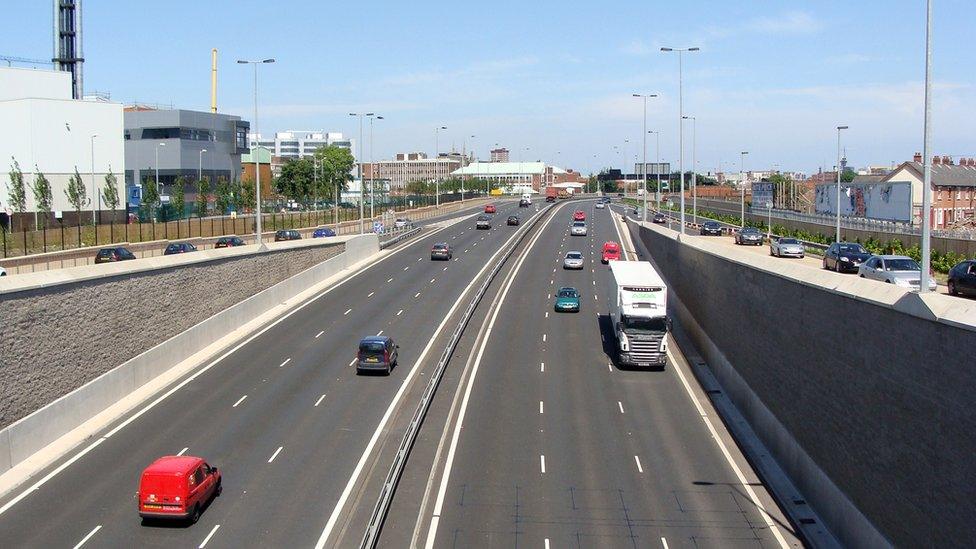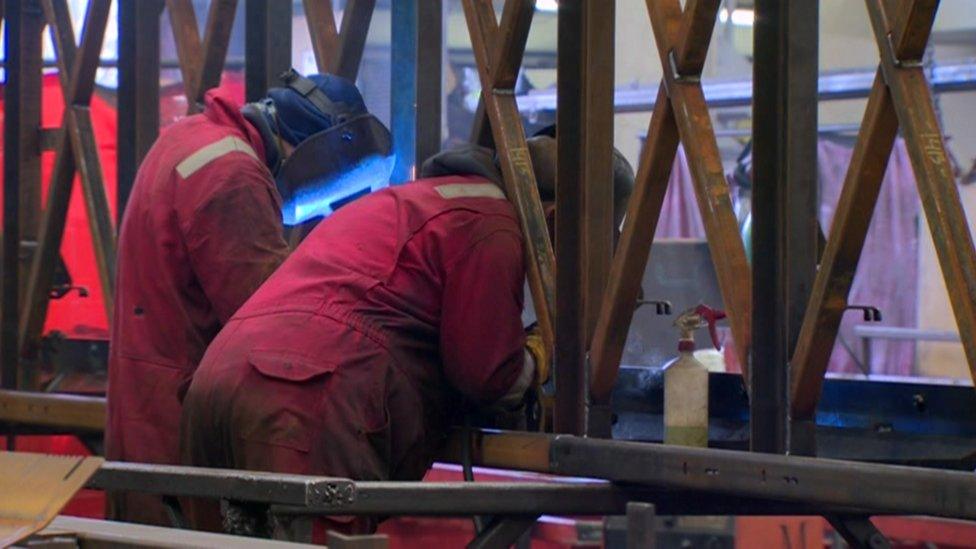'Brexit uncertainty affects NI businesses'
- Published
- comments

Private sector activity in October fell for the eighth month in a row due to Brexit-related uncertainty, according to a survey.
Every month, Ulster Bank asks firms across the private sector about things like new orders, exports and staffing levels.
The survey is considered a reliable indicator of economic growth.
Output, new orders and employment dropped with clients reportedly reluctant to commit to new projects.
The picture is particularly challenging for those in retail and construction.
Retailers in October reported orders falling at the fastest rate in more than eight years.

Richard Ramsey said falling retail orders were affecting employment figures in the sector
Richard Ramsey, Ulster Bank chief economist, said this was feeding through to employment, with staffing levels in retail falling at their fastest rate in seven years.
"These findings chime with incoming news on new car sales and demand for retail property, all of which point to subdued consumer confidence," he said.
But there were some improvements compared to September.
In manufacturing, output rose for the first time in six months.
Firms in the services sector took on more staff for the first time in 10 months.
"Weakest quarter"
"Context is important here, as manufacturing's improvement is coming off the weakest quarter in 10-and-a-half years," Mr Ramsey added.
"Similarly, the improvements cited by service sector firms follow multi-year lows. It remains to be seen whether these latest improvements are sustained."
Firms in Northern Ireland are the most pessimistic in the UK, but less pessimistic than they were in September.
"Last month's Brexit deal has done little to reduce the high degree of uncertainty facing businesses," Mr Ramsey said.
"With election fever now gripping the country, political uncertainty and business uncertainty will loom large in 2020."
- Published17 October 2019

- Published9 September 2019

- Published8 July 2019
